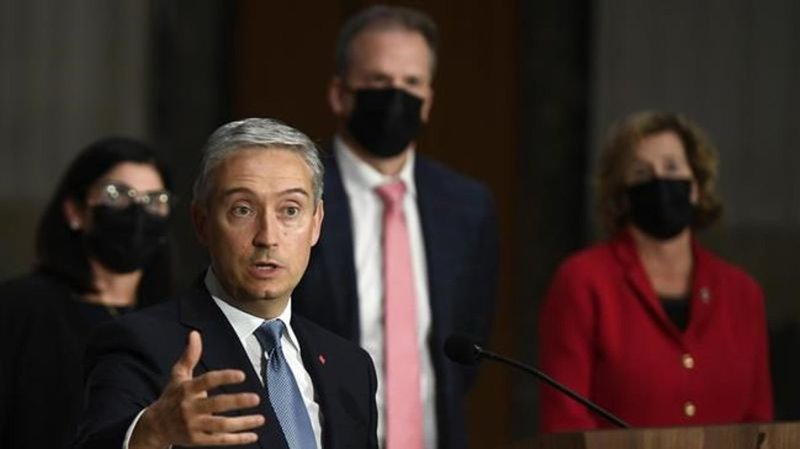
U.S. commerce secretary agrees to meet quarterly with Canada’s industry minister
WASHINGTON — There may be gale-force winds of change in America’s long-term political forecast, but Canada will keep pressing its case with the White House and Congress regardless of who ends up in control of Capitol Hill next year, Industry Minister François-Philippe Champagne said Thursday.
Champagne emerged from two days of meetings with his U.S. counterparts, including Commerce Secretary Gina Raimondo, with a commitment to hold even more meetings as the two countries work on ways to expedite a robust economic recovery on both sides of the border.
He said he’ll now meet with Raimondo and White House science adviser Eric Lander four times a year in order to accelerate their collective effort on issues like reinforcing Canada-U.S. supply chains, developing strategies for critical minerals and rare-earth elements, and reaching shared climate goals.
“I think this is good for Canada,” Champagne said. “This is good, because that’s what we need to do, is to see what we can do more in North America.”


